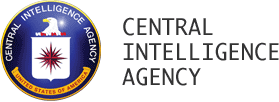CIA Engages in Domestic Surveillance With the Connivance of New York Cops

Yesterday, I wrote, "[t]he surveillance state is better established than most people realize, and reaches far beyond our communications and Internet activities," and how right I was. I may have been referrring to the spreading use of license-plate cameras, but it turns out that the classic spook outfit, the Central Intelligence Agency, has turned its sights inwards, on Americans, with the enthusiatic collaboration of the Intelligence Division of New York City's own NYPD. We know this courtesy of a Central Intelligence Agency Inspector General's report obtained by the Electronic Privacy Information Center via that legal jaws of life known as a Freedom of Information Act request. The report concludes there's "insufficient basis to merit a full investigation" into CIA activities in New York City, even though it found "irregular personnel practices" and other lapses in the conduct of the CIA's relationship with the NYPD.
The IG's report was prompted by a 2011 Associated Press story on the intelligence relationship, raising questions about whether the report was a response to public embarrassment, or to an actual revelation about CIA conduct learned only from the press. The CIA's relationship with the NYPD apparently began in 2002, after a retired CIA officer was appointed deputy director of the NYPD-ID.
In Review of the CIA-NYPD Relationship, Inspector General David Buckley notes that the "Agency's longstanding relationship with the NYPD-ID is unique. OIG is unaware of any similar relationship between the Agency and other local law-enforcemet entities in the United States." This is probably a good thing, given the acknowledged risks of "negative public perception," especially with regards to the CIA stepping outside its appropriate bounds.There is also, the IG notes, "the risk that CIA officers could become involved in law enforcement matters." That's no small concern, since the CIA's own Website defines the Agency director's mission as "[c]ollecting intelligence through human sources and by other appropriate means, except that he shall have no police, subpoena, or law enforcement powers or internal security functions."
The report continues:
With these considerations in mind, OIG's discovery of a number of irregular personnel practices, the lack of formal documentation in some imporatant instances, and the varying degrees of management and legal oversight regarding the CIA-NYPD relationship post-9/11 is noteworthy. The revelation of these issues, as discussed in more detain in the Executive Summary, leads me to conclude that the risks associated with the Agency's relationship with NYPD were not fully considered and that there was inadequate direction and control by the Agency managers responsible for the relationship.
Specific problems included the mishandling of "potentially unfiltered NYPD-ID reports." Part of the problem here seems to be that a CIA officer given leave without pay to work full-time with the NYPD was never advised as to prohibitions on CIA domestic activity "and believed he had 'no limitations' as far as what he could or could not do." Ultimately, this CIA officer came to direct "ALL NYPD investigations, operations and surveillance activities directed at US persons and non-US persons."
Since this CIA officer he was on leave without pay, however, (though apparently paid by the NYPD), the CIA's Office of the General Counsel concluded that legal restrictions on CIA law enforcement activities don't apply.
Nice end run.
In return, an NYPD detective was apparently offered "Agency operational training," though he or she failed to successessfully complete the course.
Other CIA officers were also detailed to the NYPD to analyze intelligence reports and liaise between the police department and other agencies, including the FBI.
Despite the very close relationship between the CIA and NYPD in conducting and analyzing surveillance, and admitted missteps along the way in terms of guidance and handling intelligence reports, Inspector General Buckley concludes there is no "evidence that Agency officers engaged or participated in any activities that violated EO 12333 or the National Security Act of 1947."
So, all is well. Except that the Central Intelligence Agency is now operating domestically, through local police proxies.


Show Comments (49)